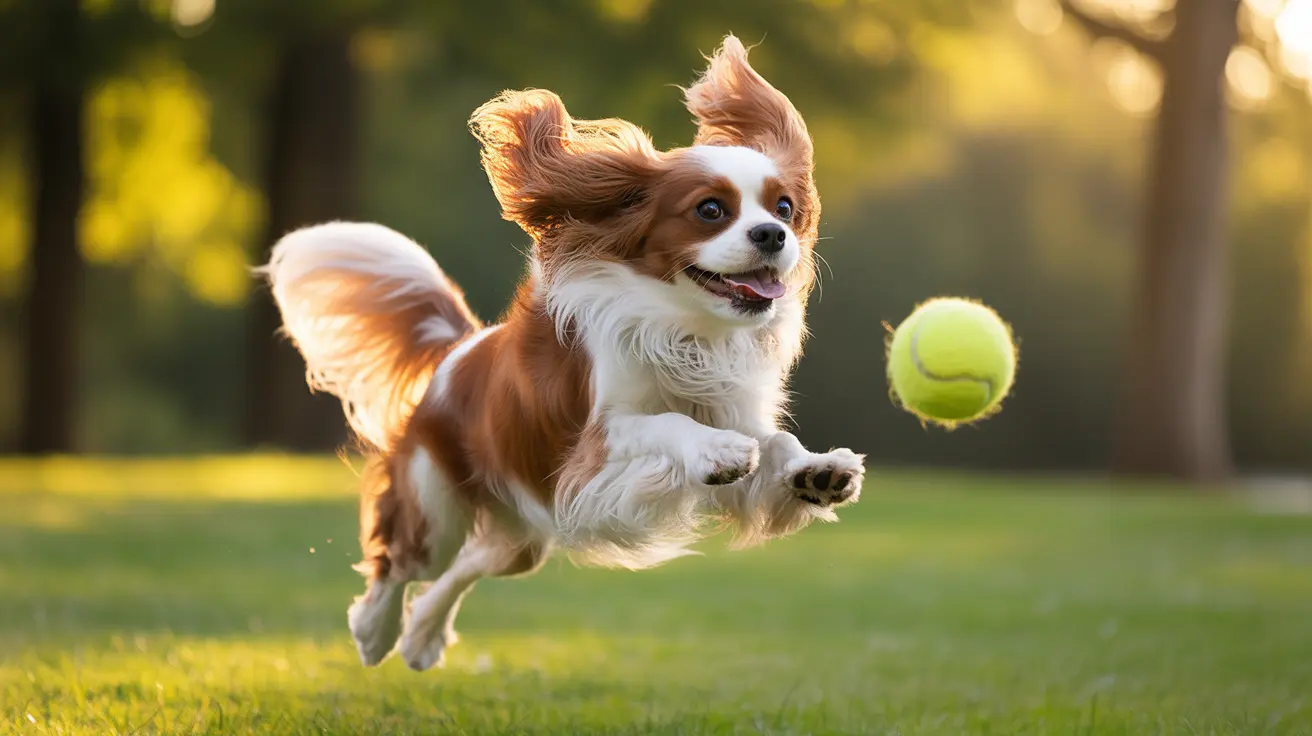Considering adding a Cavalier King Charles Spaniel to your family? These beloved companion dogs have captured hearts worldwide with their gentle nature and adorable appearance. However, before making this important decision, it's crucial to understand both the rewards and challenges of owning this distinctive breed.
In this comprehensive guide, we'll explore everything you need to know about Cavalier King Charles Spaniels, from their loving temperament to their significant health considerations, helping you make an informed choice about whether this breed is right for your lifestyle.
The Delightful Personality of Cavalier King Charles Spaniels
Cavaliers are renowned for their exceptionally affectionate and friendly nature. These dogs form deep emotional bonds with their families and are known for their gentle, patient temperament. Their adaptable personality makes them excellent companions for various living situations, from busy family homes to quiet senior residences.
Their sociable nature extends beyond their human family members. Cavaliers typically get along well with other pets and are notably good with children, making them an ideal choice for multi-pet households or families with young kids.
Exercise and Activity Requirements
Despite their reputation as lap dogs, Cavaliers need regular exercise to maintain good health and happiness. These dogs require approximately 30-60 minutes of daily activity, which should include both walks and interactive playtime.
Their spaniel heritage means they enjoy activities like fetch and gentle outdoor adventures. However, it's important to avoid strenuous exercise in hot weather due to their brachycephalic (flat-faced) features, which can make them prone to overheating.
Grooming and Maintenance Needs
Maintaining a Cavalier's signature coat requires regular attention but isn't overly demanding. Weekly brushing sessions help prevent matting and reduce shedding, while occasional baths keep their coat clean and healthy.
Special attention should be paid to their ears, as their long, floppy design makes them prone to infections. Regular cleaning and checking of the ears should be part of their routine care.
Health Considerations and Challenges
The most significant consideration for potential Cavalier owners is the breed's predisposition to several serious health conditions. Mitral Valve Disease (MVD) affects nearly all Cavaliers by age ten, while Syringomyelia (SM) impacts over half the breed population.
These health challenges can lead to substantial veterinary costs and potentially shorter lifespans compared to other breeds. The average lifespan ranges from 9 to 14 years, though this can vary significantly based on genetic factors and quality of care.
Finding a Responsible Breeder
Given the breed's health concerns, selecting a reputable breeder is crucial. Look for breeders who conduct thorough health testing on breeding stock, particularly for heart conditions and SM. Request documentation of health clearances for both parent dogs and their lineage.
Be prepared to pay more for a puppy from a responsible breeder who prioritizes health testing and ethical breeding practices. This initial investment can help reduce the likelihood of severe health issues later in life.
Frequently Asked Questions
What are the main health risks and common illnesses Cavalier King Charles Spaniels face?
The primary health concerns include Mitral Valve Disease (MVD), Syringomyelia (SM), hip dysplasia, and various eye conditions. MVD affects almost all Cavaliers by age ten, while SM impacts over 50% of the breed population.
How much daily exercise does a Cavalier King Charles Spaniel need to stay healthy and happy?
Cavaliers require 30-60 minutes of daily exercise, including walks and playtime. This should be spread throughout the day and adjusted based on weather conditions, especially during hot weather due to their sensitivity to heat.
What grooming and maintenance are required for a Cavalier King Charles Spaniel's coat and ears?
Weekly brushing, regular ear cleaning, and occasional baths are essential. Their silky coat needs consistent maintenance to prevent matting, while their ears require special attention to prevent infections due to their droopy nature.
Are Cavalier King Charles Spaniels good family pets and how do they behave with children and other animals?
Yes, Cavaliers make excellent family pets. They're gentle, patient with children, and typically get along well with other pets. Their friendly and adaptable nature makes them suitable for various family situations.
How can I find a responsible breeder to avoid genetic health problems in Cavalier King Charles Spaniels?
Look for breeders who perform comprehensive health testing, particularly for heart conditions and SM. Request health clearances for both parents and grandparents, and ensure the breeder follows ethical breeding practices recognized by kennel clubs.
Conclusion
While Cavalier King Charles Spaniels offer unmatched companionship and affection, potential owners must carefully weigh their decision. Their loving nature and adaptability make them wonderful pets, but their health challenges require committed care and potentially significant financial resources.
By understanding both the joys and responsibilities of Cavalier ownership, you can make an informed decision about whether this beloved breed is the right choice for your family.






